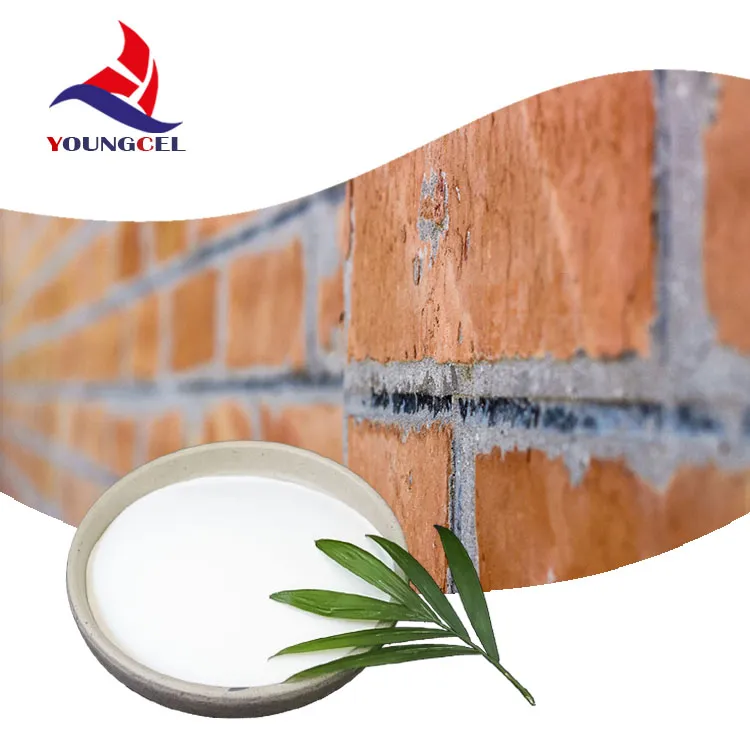Jul . 10, 2024 16:28
Back to list
Finding Sustainable Alternatives to Plastic with the Use of Cellulose-Based Materials
Celulosa, also known as cellulose, is a key component of plant cell walls and the most abundant organic compound on Earth. It plays a crucial role in the structure and function of plants, providing strength and rigidity to their cells. This versatile carbohydrate has a wide range of applications, from being a dietary fiber for humans to serving as a raw material for various industrial processes.
One of the most important functions of celulosa in plants is to provide structural support. It forms a network of fibers that give plants their shape and rigidity, allowing them to stand upright and withstand environmental stresses such as wind and rain. Without celulosa, plants would be floppy and unable to grow tall or wide. In addition to providing structural support, celulosa also helps regulate the movement of water and nutrients within plant cells, contributing to their overall health and vitality.
Celulosa is also an essential dietary fiber for humans. Although humans cannot digest celulosa directly, it plays a vital role in maintaining a healthy digestive system. Celulosa passes through the digestive tract largely unchanged, adding bulk to the stool and promoting regular bowel movements. This helps prevent constipation and other digestive problems, as well as contributing to a feeling of fullness and satiety, which can aid in weight management

celulosa. In addition to its role in plant structure and human digestion, celulosa is a valuable raw material for various industrial processes. One of the most common uses of celulosa is in the production of paper and paper products. Celulosa fibers are strong, flexible, and absorbent, making them ideal for use in papermaking. Celulosa is also used in the production of textiles, plastics, and building materials, among other things. In recent years, celulosa has gained attention as a sustainable alternative to fossil-based materials, as it is renewable, biodegradable, and widely available. As the world seeks to reduce its carbon footprint and transition to a more sustainable economy, celulosa is poised to play a key role in this transition. Its abundance in nature, versatility in applications, and eco-friendly properties make it an attractive alternative to traditional materials. From providing structural support to plants to promoting digestive health in humans and serving as a raw material for industrial processes, celulosa is a remarkable compound with a wide range of benefits and applications. As we continue to explore and harness the potential of celulosa, we may unlock new opportunities for sustainable development and environmental stewardship.

celulosa. In addition to its role in plant structure and human digestion, celulosa is a valuable raw material for various industrial processes. One of the most common uses of celulosa is in the production of paper and paper products. Celulosa fibers are strong, flexible, and absorbent, making them ideal for use in papermaking. Celulosa is also used in the production of textiles, plastics, and building materials, among other things. In recent years, celulosa has gained attention as a sustainable alternative to fossil-based materials, as it is renewable, biodegradable, and widely available. As the world seeks to reduce its carbon footprint and transition to a more sustainable economy, celulosa is poised to play a key role in this transition. Its abundance in nature, versatility in applications, and eco-friendly properties make it an attractive alternative to traditional materials. From providing structural support to plants to promoting digestive health in humans and serving as a raw material for industrial processes, celulosa is a remarkable compound with a wide range of benefits and applications. As we continue to explore and harness the potential of celulosa, we may unlock new opportunities for sustainable development and environmental stewardship.
Latest news
-
Rdp Powder: Key Considerations for Wholesalers in the Building Materials IndustryNewsJul.08,2025
-
Key Considerations for Wholesalers: Navigating the World of Hpmc - Based ProductsNewsJul.08,2025
-
Hpmc Detergent: Key Considerations for WholesalersNewsJul.08,2025
-
Key Considerations for Wholesalers: China Hpmc For Tile Adhesive, Coating Additives, Concrete Additives, and MoreNewsJul.08,2025
-
Crucial Considerations for Wholesalers: Navigating the World of Construction MaterialsNewsJul.08,2025
-
Key Considerations for Wholesalers Sourcing Additive For Cement, Additive For Concrete, Additive For Putty from Additive Manufacturer Shijiazhuang Gaocheng District Yongfeng Cellulose Co., Ltd.NewsJul.08,2025




